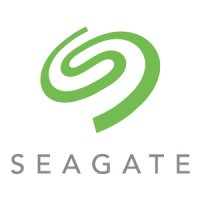AMD EPYC CPU-based controller delivers exceptional compute and storage performance in an ultra-compact, dense system meeting the demands of today’s enterprise
FREMONT, CA — December 14, 2021 — Managing massive datasets is excessively complex and costly. Today, Seagate Technology Holdings plc (NASDAQ: STX), a world leader in mass-data storage infrastructure solutions, announced the new Exos® Application Platform (AP) with a new controller featuring 2nd Gen AMD EPYC™ processors. The efficient, scalable, affordable end-to-end compute and storage platform delivers integrated compute and storage in a single enclosure optimising rack space utilisation, power efficiency, heat dissipation and storage density.
The need for advanced storage solutions continues to rise to unprecedented levels with the ever-increasing growth in data generation. According to a report commissioned by Seagate and conducted by the research firm IDC, Rethink Data, enterprise data is expected to grow at an average rate of 42.2% over the next two years. The survey, which was conducted by IDC, also found that only 32% of data available to enterprises is put to work. The remaining 68% is unleveraged.
“Data is often discarded because the cost of keeping it is immediate, despite significant potential future payoffs,” said Ken Claffey, senior vice president, Systems at Seagate. “The new Exos AP with AMD EPYC processors can help IT professionals build a cost-effective data management strategy that intelligently captures, stores, and analyses data today and leverages it in the future to drive success.”
Exos AP options with the all-new AP-BV-1 controller, offer exceptional compute and storage performance in a single chassis. With dual AMD EPYC processor-based controllers, the system delivers high availability or controller partitioning, with the flexibility of a common controller slot allowing connection to additional EXOS E SAS expansion units in matched chassis. The architecture is perfectly balanced for current and future CPUs and drive capacities.
"We are excited that Seagate picked AMD EPYC processors to power new Exos AP solution," said Rajneesh Gaur, corporate vice president and general manager, Embedded Business Unit, AMD. "Combining the processors’ high performance and formidable I/O connectivity capabilities and Seagate's industry-leading mass data expertise, creates a solution that delivers flexibility and performance while helping enterprises customers improve TCO."
AMD EPYC processors offer a combination of features to help support the need for advanced storage solutions. In the Exos AP Enterprise Data Storage System Controller, AMD EPYC processors offer core counts of 8, 12, or 16 for varying levels of performance. The processors also provide the solution with dedicated PCIe® 4 lanes that deliver 200 GbE network connectivity, and high bandwidth to SAS controller for faster HDD and SSD response. Finally, the Exos AP system supports 25 GbE on the motherboard providing base I/O which is often an added cost on other competitor platforms.
The Exos AP options featuring the new AP-BV-1 controller is available this month. For further details please visit Seagate’s Compute & Storage Convergence Platforms page.
About Seagate Technology
Seagate Technology crafts the datasphere, helping to maximise humanity’s potential by innovating world-class, precision-engineered mass-data storage and management solutions with a focus on sustainable partnerships. A global technology leader for more than 40 years, the company has shipped over three billion terabytes of data capacity. Learn more about Seagate by visiting www.seagate.com or following us on Twitter, Facebook, LinkedIn, YouTube, and subscribing to our blog.
©2021 Seagate Technology LLC. All rights reserved. Seagate, Seagate Technology and the Spiral logo are registered trademarks of Seagate Technology LLC in the United States and/or other countries. Exos is a trademark or registered trademark of Seagate Technology LLC or one of its affiliated companies in the United States and/or other countries. All other trademarks or registered trademarks are the property of their respective owners.
AMD, the AMD Arrow logo, EPYC, and combinations thereof are trademarks of Advanced Micro Devices, Inc.






